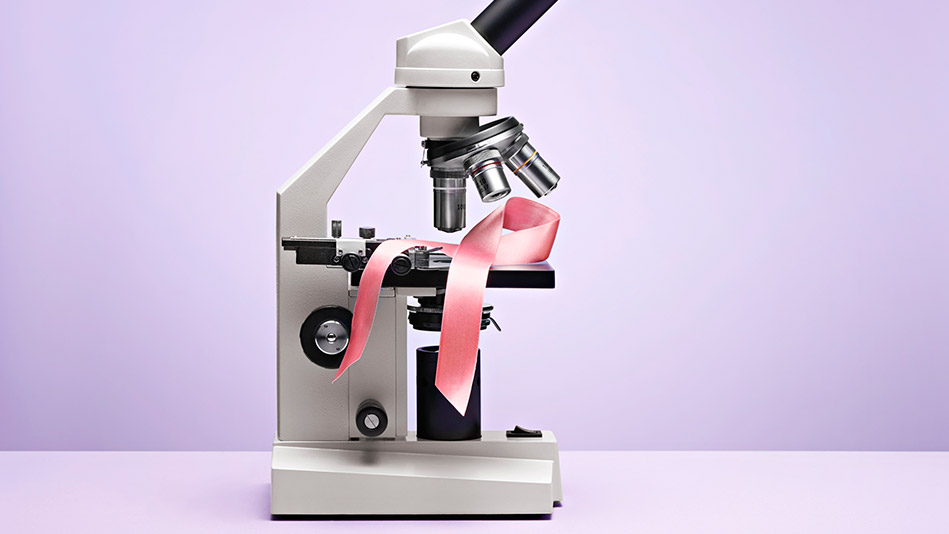3 Big Breakthroughs in the Fight Against Breast Cancer
Forty thousand women still die from the disease every year, but new research shows that hope may be on the horizon.

Photo: Adam Voorhes
Over the past 25 years, science has made great strides in breast cancer treatment. Roughly 84 percent of women survive ten years or more after diagnosis, compared with 62 percent a generation ago. However, the prognosis is still bleak for the 5 percent of women whose cancer has spread beyond the breast at the time of diagnosis, or for the even larger group of early-stage patients whose cancer later shows up elsewhere in the body. Metastatic breast cancer kills about 75 percent of those initially diagnosed with it within five years—a shocking statistic often overshadowed by the progress we've made. But three top female scientists are spearheading some of the most promising research to save even more lives.
Cancer cells mutate in such an unpredictable way that it's difficult to figure out how to stop them. But Laurie Glimcher, MD, dean of Weill Cornell Medical College, and her colleagues have unearthed some clues in women with hard-to-treat triple-negative breast cancer (which doesn't respond to hormonal therapy or many other treatments). They pinpointed a protein responsible for controlling a genetic pathway that impacts tumor growth. "The pathway does some positive things in the body, like helping you fight off viruses, but we found that it also happens to help tumors survive," Glimcher says. Understanding the protein's role is a huge breakthrough, as researchers can now look for ways to shut it down in the hopes that tumors will self-destruct.
Aspirin seems an unlikely candidate for fighting breast cancer, but in certain patients it may help curtail the disease. An observational study coauthored by Wendy Chen, MD, an assistant professor at Harvard Medical School, revealed that women with stage I, II, or III breast cancer who took the painkiller two to five times per week were 71 percent less likely to die from the disease than those who didn't take the drug. Chen is now looking for funding to further study aspirin's effects. "So often cancer research focuses on developing new drugs," says Chen. "But we may be able to do a lot of good with medicine that many of us already take on a regular basis."
Most studies of breast cancer drugs include only women with tumors large enough to show up on scans so doctors can measure how the tumors change in response to medication. But scientists should rethink this one-track approach, says Patricia Steeg, PhD, deputy chief of the Women's Malignancies Branch at the National Cancer Institute's Center for Cancer Research. Steeg and her colleagues found that the drug temozolomide, though not very effective for shrinking brain tumors caused by breast cancer, was able to stop the cancer cells from ever reaching the brain in certain cases when they tested it on lab mice. Now planning for a clinical trial is under way. "Based on our early data, I'm hopeful," says Steeg. "A drug like this could improve patients' quality of life and potentially extend their life-span."
Taming Rogue Cells
Cancer cells mutate in such an unpredictable way that it's difficult to figure out how to stop them. But Laurie Glimcher, MD, dean of Weill Cornell Medical College, and her colleagues have unearthed some clues in women with hard-to-treat triple-negative breast cancer (which doesn't respond to hormonal therapy or many other treatments). They pinpointed a protein responsible for controlling a genetic pathway that impacts tumor growth. "The pathway does some positive things in the body, like helping you fight off viruses, but we found that it also happens to help tumors survive," Glimcher says. Understanding the protein's role is a huge breakthrough, as researchers can now look for ways to shut it down in the hopes that tumors will self-destruct.
Treating From the Medicine Cabinet
Aspirin seems an unlikely candidate for fighting breast cancer, but in certain patients it may help curtail the disease. An observational study coauthored by Wendy Chen, MD, an assistant professor at Harvard Medical School, revealed that women with stage I, II, or III breast cancer who took the painkiller two to five times per week were 71 percent less likely to die from the disease than those who didn't take the drug. Chen is now looking for funding to further study aspirin's effects. "So often cancer research focuses on developing new drugs," says Chen. "But we may be able to do a lot of good with medicine that many of us already take on a regular basis."
Catching Cancer Before It Spreads
Most studies of breast cancer drugs include only women with tumors large enough to show up on scans so doctors can measure how the tumors change in response to medication. But scientists should rethink this one-track approach, says Patricia Steeg, PhD, deputy chief of the Women's Malignancies Branch at the National Cancer Institute's Center for Cancer Research. Steeg and her colleagues found that the drug temozolomide, though not very effective for shrinking brain tumors caused by breast cancer, was able to stop the cancer cells from ever reaching the brain in certain cases when they tested it on lab mice. Now planning for a clinical trial is under way. "Based on our early data, I'm hopeful," says Steeg. "A drug like this could improve patients' quality of life and potentially extend their life-span."



